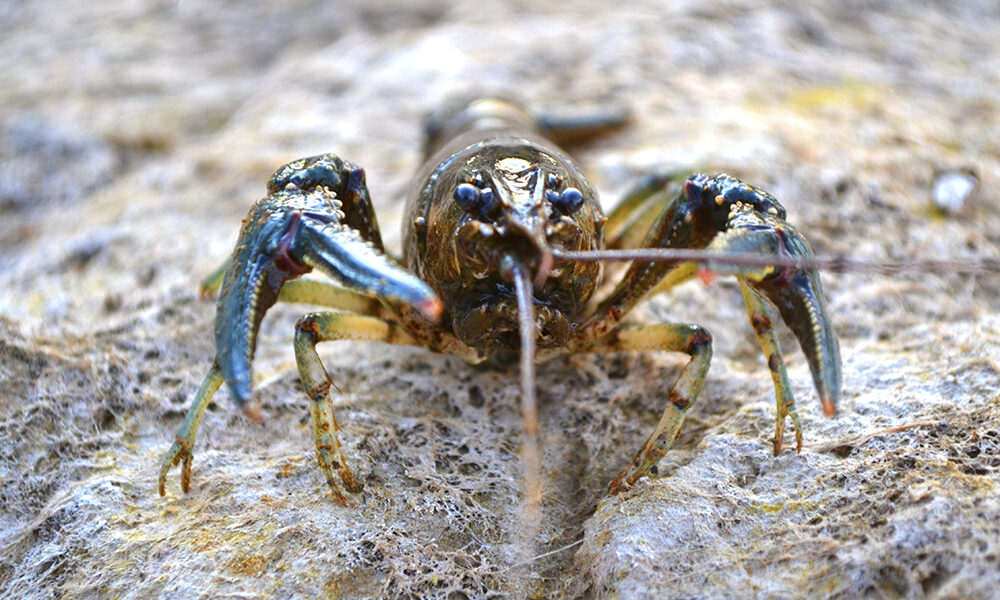Read on to discover what scientists are learning about lobsters — and why, like all animals, they need our care and protection.
This image contains content which some may find confronting
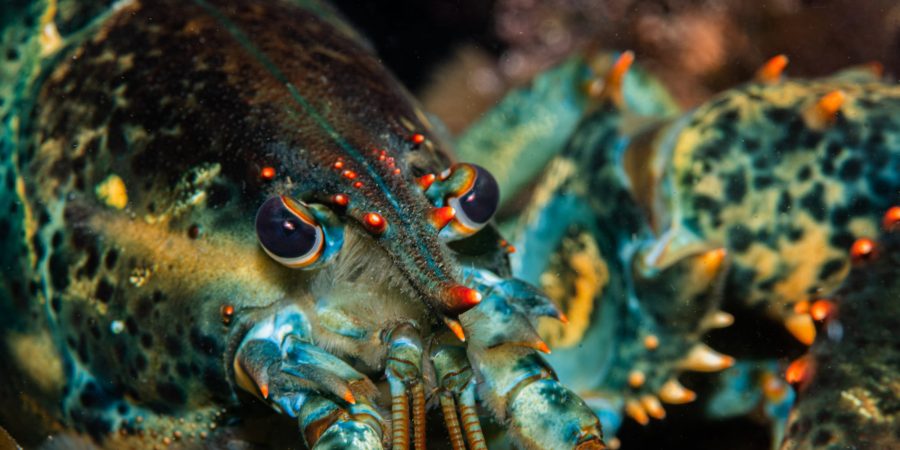
1. They might not look it, but lobsters are sensitive animals
Despite their knight-like appearance, lobsters are actually sensitive and delicate animals. Although they can’t see or hear very well (in the way that humans do) they do have an exquisite sense of touch, thanks to hundreds of thousands of tiny hairs that stick out from gaps in their shells. Lobsters are also sensitive to changes in temperature — detecting temperature shifts as small as one degree — which is partly why they migrate up to 160 kilometres every year to find the perfect breeding ground for their fragile young. This certainly puts a horrendous death in a scalding pot into perspective.
This image contains content which some may find confronting
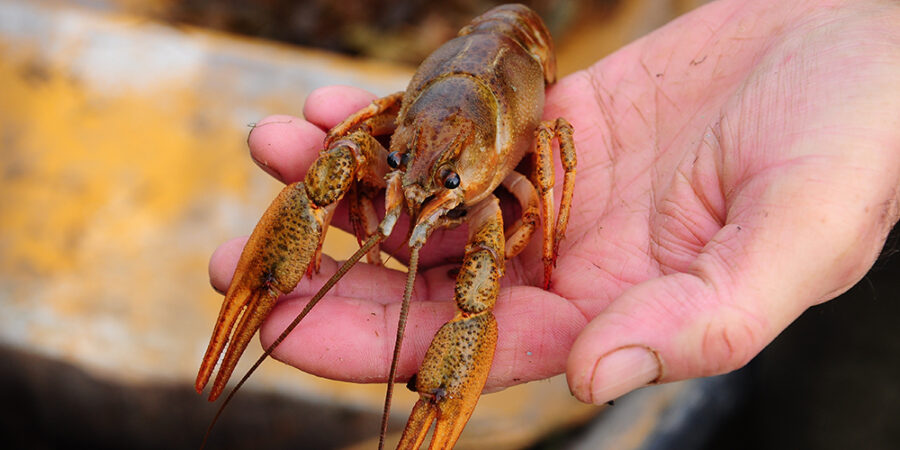
2. Lobsters ‘smell’ with their feet!
Contrary to what we see in cartoons, lobsters use their claws for much more than just pinching! Lobsters can be left-‘handed’, right-‘handed’ or ambidextrous, and have several receptors on their claws and their legs, which they use to locate and recognise any food that is around them.
This image contains content which some may find confronting

3. Lobsters feel pain – and just like us, they can learn to avoid it
Indeed lobsters are not only able to feel pain, scientists have also discovered that crustaceans can learn to anticipate and avoid pain — a reasoning historically thought of as a trait unique to vertebrates (animals with backbones, including us).
This image contains content which some may find confronting
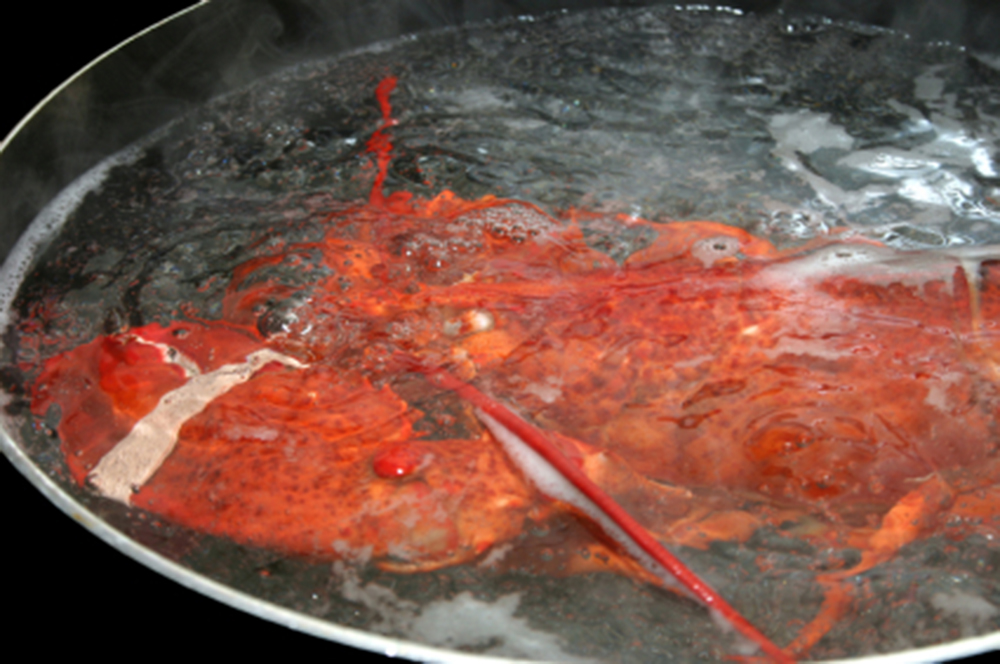
4. Lobsters cannot go into shock
When other animals, including humans, experience extreme pain, their nervous system may shut down as a coping mechanism. Zoologists have found that lobsters and other crustaceans don’t have this ability to go into ‘shock’ so when they are exposed to cruel procedures (such as lobsters having their claws torn off, or prawns having their eyes cut off) — their suffering is prolonged.
The lobster does not have an autonomic nervous system that puts it into a state of shock when it is harmed. It probably feels itself being cut. ... I think the lobster is in a great deal of pain from being cut open ... [and] feels all the pain until its nervous system is destroyed.
Scientists have found that it can take lobsters between 35 – 45 seconds to die when plunged into a pot of boiling water — and if they are dismembered their nervous system can still function for up to an hour.
This image contains content which some may find confronting
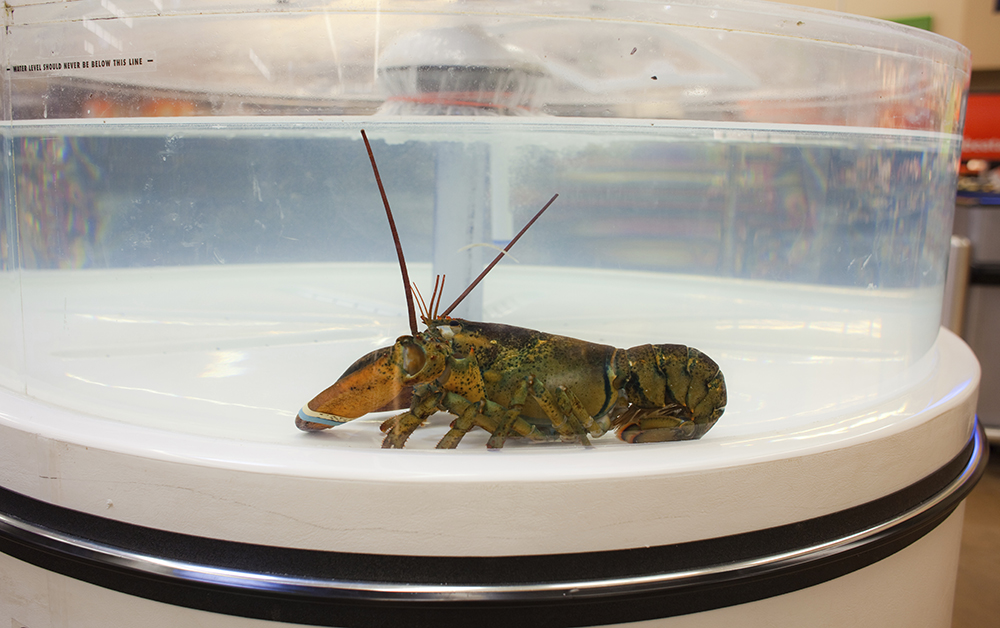
5. Lobsters seek out ‘safe spaces’ when stressed
Every year, millions of lobsters meet an extremely cruel fate in a cooking pot. It’s enough to make any lobster anxious … and yes, new research has revealed crustaceans may experience anxiety — considered a complex emotion — in much the same way humans do. And they react to it just like many of us, too — by seeking out a safe space! French researchers have even discovered that stressed crayfish (a relation to lobsters) react positively when dosed with anti-depressant drugs; the very same ones used to treat anxiety in humans.
This image contains content which some may find confronting
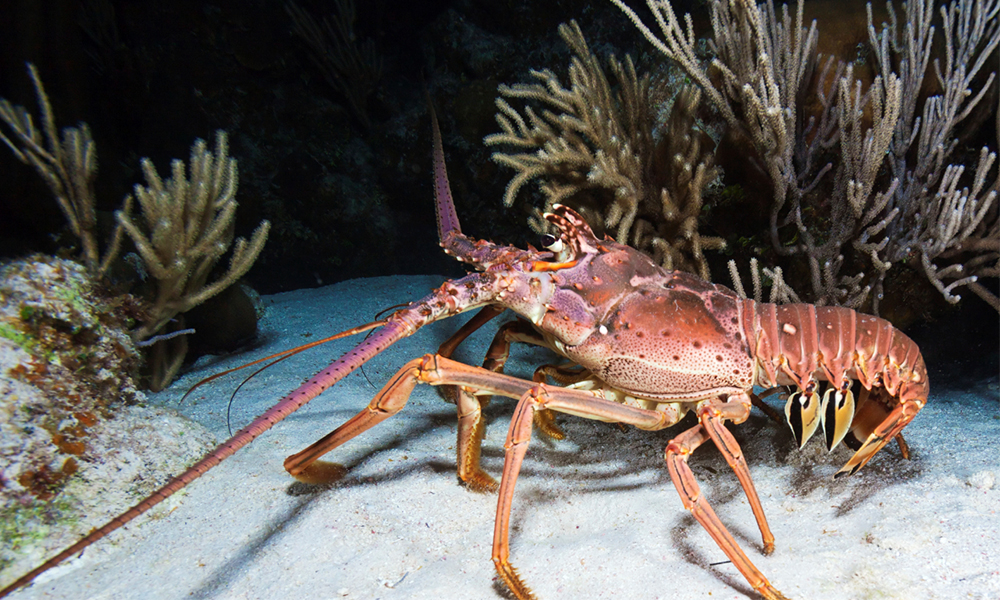
6. Lobsters never get ‘old’!
Well, not in the human sense of the word! The perfect example of ‘ageing gracefully’, lobsters don’t seem to suffer from any decline in strength or health and can just keep on keeping on, with adult lobsters retaining the vitality of youth and being able to regrow limbs even at a century (or more) old! They continue to grow, feed as normal, and have babies, until they eventually meet their end due to being killed by humans, being predated on by natural predators, or from disease or exhaustion.
Perhaps they’ve received less care to date because they live in foreign underwater worlds, or simply because they look so different, but scientists are just starting to scratch the surface of the incredible abilities, personalities and lives of marine animals. Today, we know that cuttlefish can reminisce about a favourite dish they ate, fish have friends, and sharks have a sixth sense! Despite this, the ‘seafood’ industries continue to cause immense suffering when they pull these sensitive animals from their ocean homes, farm them in underwater ‘factory farms’, and force them to endure cruel procedures…
Help lobsters be seen as the sensitive individuals they are
Lobsters might be ‘voiceless’ in the human understanding of the word, but that doesn’t mean we shouldn’t listen to what scientists are telling us about them. It is clear that lobsters are unique animals who have social bonds, feel pain and anxiety, and experience life in many of the same ways that we do.
Now, more than ever, it’s time to recognise that these extraordinary animals are as equally worthy of the care and protection we give to the animals whom we share our homes with. The good news is, we all have the power to take a stand against cruelty towards them.
Reducing or replacing animal products in our meals is not only the most profound way to reduce animal suffering, but it’s also best for the planet and for us as well. Choosing plant-based food is simple and delicious. You can even enjoy ocean-inspired dishes that are animal-friendly, from ‘fish’ and chips and sushi to ‘tuna’ sandwiches.
Keen to find out more? You’ll find all the information you need, plus a selection of delicious recipes, in our free Veg Starter Kit! Or, if you’re ready to get cooking right away, then you might like to browse our collection of 100+ scrumptious recipes at VegKit.com!

